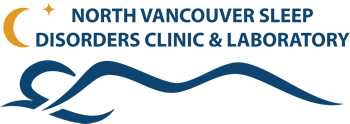Sleep Apnea
- Home
- Sleep Disorders
- Sleep Apnea
Sleep Apnea
The word apnea means "no breath" and implies that, for whatever reason, your ability to breathe has been compromised. Apnea is a temporary cessation of breathing. Breathing is critical to all body functions.
Your brain generally regulates your breathing during waking periods; you also have the option to voluntarily take a deep breath now and again, such as while yawning or in response to an increase in physical activity like running. Once you take those breaths, gas exchange happens in the bloodstream which will self-correct for any imbalances in oxygen or carbon dioxide; this "gas exchange" is the primary purpose of breathing.
Types of Sleep Apnea:
- Obstructive Sleep Apnea (OSA)
- Central Sleep Apnea (CA)
- Complex Sleep Apnea Syndrome
Obstructive Sleep Apnea (OSA)
The most common form of sleep apnea is OSA. The word obstructive is important here, as something has happened to the upper airway during sleep to obstruct the process of breathing.
People with OSA can experience breathing that repeatedly stops and starts during sleep. This happens because the muscles in the back of your throat relax too much and block your airway. When this occurs, you may snore loudly or make choking noises as you try to breathe. Your brain and body can become oxygen-deprived and you may wake up briefly to reopen your airway, often so briefly that you don't remember it in the morning. These disruptions can happen dozens or even hundreds of times each night, severely impacting the quality of your sleep.
People with obstructive sleep apnea often experience symptoms like excessive daytime sleepiness, morning headaches, irritability, difficulty concentrating, and sometimes waking up with a sore throat or dry mouth. They might not be aware of their disrupted sleep pattern, but it can lead to significant health issues if left untreated. It may increase the risk of high blood pressure, heart disease, diabetes, and stroke. Also, the drowsiness it causes can make everyday activities like working and driving dangerous.
There are several risk factors that increase the likelihood of having obstructive sleep apnea. Being overweight is a significant one, as excess fat around the neck can obstruct the airway. The risk also increases with age. Some people may have naturally narrow airways or enlarged tonsils or adenoids which can block the airway. Other risk factors include smoking, use of alcohol or sedatives. Family history can play a role too, as genetics can influence the shape of your airway and the risk of obesity. Managing these risk factors, when possible, can help reduce the likelihood of developing OSA or reduce the severity of OSA.
Treatment for obstructive sleep apnea usually starts with lifestyle changes, such as losing weight if you're overweight, quitting smoking, and avoiding alcohol and sedatives, which can relax the throat muscles. For moderate to severe cases, the most common treatment is a Continuous Positive Airway Pressure (CPAP) machine. This device uses a mask that fits over your nose and mouth and gently blows air into your throat to keep the airway open while you sleep. In some cases, dental devices or surgery may be recommended. It's important to get proper treatment for OSA, as it can greatly improve your sleep quality and overall health.
Central Sleep Apnea (CA)
Central apnea is a type of sleep apnea that occurs when your brain doesn't send proper signals to the muscles that control breathing. Unlike obstructive sleep apnea, where the airway is blocked, central apnea is about a communication problem between your brain and your breathing muscles. During sleep, you may experience pauses in breathing or periods of shallow breathing which can lead to frequent awakenings or a feeling of unrestful sleep. You might not be aware of these interruptions in breathing, but they can significantly affect the quality of your sleep and overall health.
Medical conditions that increase your risk of central apnea include strokes, chronic heart failure, chronic kidney failure.
Opiate medications could also cause central apnea.
Complex Sleep Apnea Syndrome
Complex sleep apnea syndrome is a specific type of sleep apnea where people have both central sleep apnea and obstructive sleep apnea. This condition can be challenging to treat and requires a more tailored approach.
